Filter by
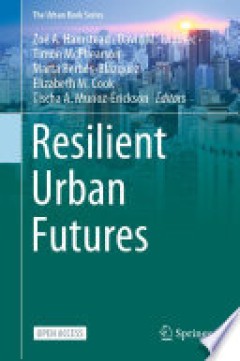
Resilient urban futures
This open access book addresses the way in which urban and urbanizing regions profoundly impact and are impacted by climate change. The editors and authors show why cities must wage simultaneous battles to curb global climate change trends while adapting and transforming to address local climate impacts. This book addresses how cities develop anticipatory and long-range planning capacities for …
- Edition
- 1
- ISBN/ISSN
- 9783030631314
- Collation
- xi, 190p. : ill.
- Series Title
- The Urban Book Series
- Call Number
- 307.1216 RES r
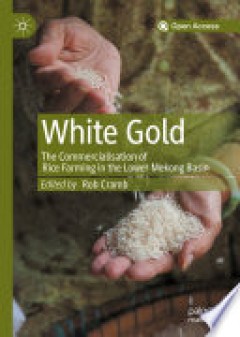
White gold : the commercialisation of rice farming in the lower mekong basin
This open access book is about understanding the processes involved in the transformation of smallholder rice farming in the Lower Mekong Basin from a low-yielding subsistence activity to one producing the surpluses needed for national self-sufficiency and a high-value export industry. For centuries, farmers in the Basin have regarded rice as “white gold”, reflecting its centrality to their…
- Edition
- 1
- ISBN/ISSN
- 9789811509988
- Collation
- XXVIII, 456 p. ; ill.
- Series Title
- White Gold: The Commercialisation of Rice Farming in the Lower Mekong Basin
- Call Number
- 633.18 CRA w

Making in the making : Performing new forms and spatialities of production
During the last two decades, we have witnessed the spreading of shared spaces of work and production in different urban contexts, attracting attention from both policymakers and scholars in economic geography and urban studies. In particular, Fablabs are considered open workshops for grassroots innovation, which is enabled by the availability of shared digital fabrication machines and by the po…
- Edition
- 1
- ISBN/ISSN
- 9788835131618
- Collation
- 270p
- Series Title
- Nuove Geografie. Strumenti di lavoro
- Call Number
- 306 CEN

The Routledge companion to actor-network theory
This companion explores ANT as an intellectual practice, tracking its movements and engagements with a wide range of other academic and activist projects. Showcasing the work of a diverse set of ‘second generation’ ANT scholars from around the world, it highlights the exciting depth and breadth of contemporary ANT and its future possibilities. The companion has 38 chapters, each answering a…
- Edition
- -
- ISBN/ISSN
- 9781138084728
- Collation
- xx, 458 p
- Series Title
- -
- Call Number
- 303.01 AND
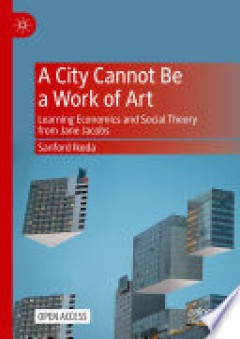
A city cannot be a work of art learning economics and social theory from jane…
This open access book connects Jane Jacobs's celebrated urban analysis to her ideas on economics and social theory. While Jacobs is a legend in the field of urbanism and famous for challenging and profoundly influencing urban planning and design, her theoretical contributions – although central to her criticisms of and proposals for public policy – are frequently overlooked even by her most…
- Edition
- -
- ISBN/ISSN
- 9789819953622
- Collation
- XXV, 400 p
- Series Title
- -
- Call Number
- 720.94 IKE a
Energy Justice Across Borders
This book is open access under a CC BY 4.0 license. We must find new and innovative ways of conceptualizing transboundary energy issues, of embedding concerns of ethics or justice into energy policy, and of operationalizing response to them. This book stems from the emergent gap; the need for comparative approaches to energy justice, and for those that consider ethical traditions that go beyon…
- Edition
- Ed. 1
- ISBN/ISSN
- 9783030240219
- Collation
- XIV, 305
- Series Title
- -
- Call Number
- 333.79 Ene
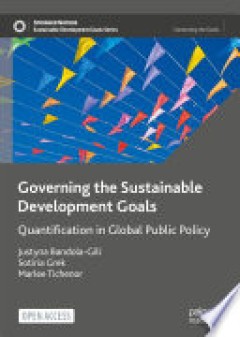
Governing the sustainable development goals : quantification in global public…
This open access book conceptualises the Sustainable Development Goals as epistemic infrastructures that connect numbers, networks and governing paradigms.The book approaches quantification not merely as a tool for governing, but rather as a broader epistemic system through which global public policy is produced. This book focuses on the role of international organisations in shaping and implem…
- Edition
- -
- ISBN/ISSN
- 9783031039386
- Collation
- XVII, 165 p
- Series Title
- -
- Call Number
- 338.927 JUS g
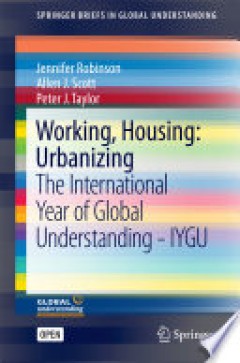
Working, Housing: Urbanizing : The International Year of Global Understanding…
This book presents an incisive outline of the historical development and geography of cities. It focuses on three themes that constitute essential foundations for any understanding of urban form and function. These are: (a) the shifting patterns of urbanization through historical time, (b) the role of cities as centers of production and work in a globalizing world, and (c) the diverse housing …
- Edition
- Ed. 1
- ISBN/ISSN
- 9783319451800
- Collation
- XV, 60
- Series Title
- -
- Call Number
- 307.76 Rob
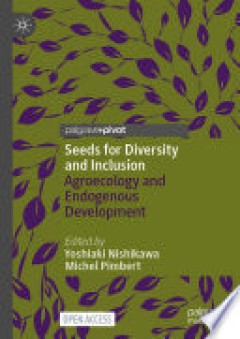
Seeds for diversity and inclusion : agroecology and endogenous development
This open access book will contribute to a more nuanced debate around seed system resilience that goes beyond the dominant dichotomous conceptualization of seed governance often characterized as traditional vs modern, subsistence vs commercial, or local vs global. While reflecting on the expanding oligopoly in the current seed system, the authors argue that such classifications limit our abilit…
- Edition
- -
- ISBN/ISSN
- 9783030894054
- Collation
- XIX, 199 p
- Series Title
- -
- Call Number
- 631.521 YOS s
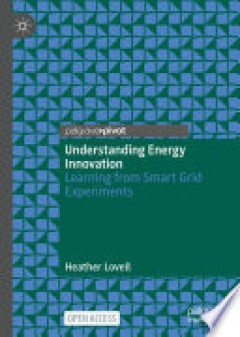
Understanding energy innovation : learning from smart grid experiments
This open access book uses smart grids to explore and better understand energy innovation, from a social science perspective. Understanding Energy Innovation has four core themes—networks, nodes, narratives and nostalgia—and each chapter tackles a theme, using case studies from Australia and Europe. Energy innovation is currently occurring at a rapid pace, in response to a host of problems …
- Edition
- -
- ISBN/ISSN
- 9789811662539
- Collation
- XI, 101 p
- Series Title
- -
- Call Number
- 621.31 HEA u
 Computer Science, Information & General Works
Computer Science, Information & General Works  Philosophy & Psychology
Philosophy & Psychology  Religion
Religion  Social Sciences
Social Sciences  Language
Language  Pure Science
Pure Science  Applied Sciences
Applied Sciences  Art & Recreation
Art & Recreation  Literature
Literature  History & Geography
History & Geography